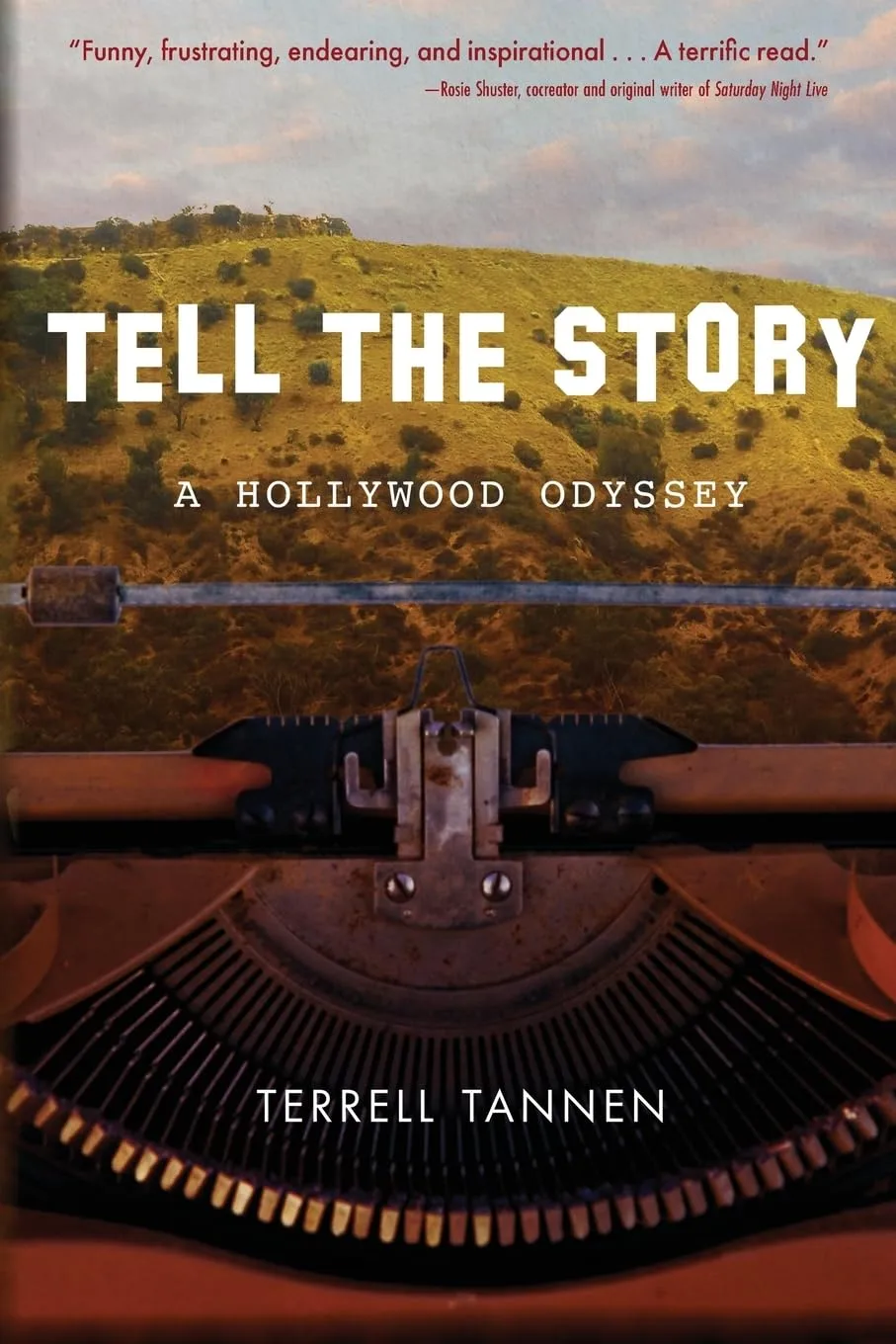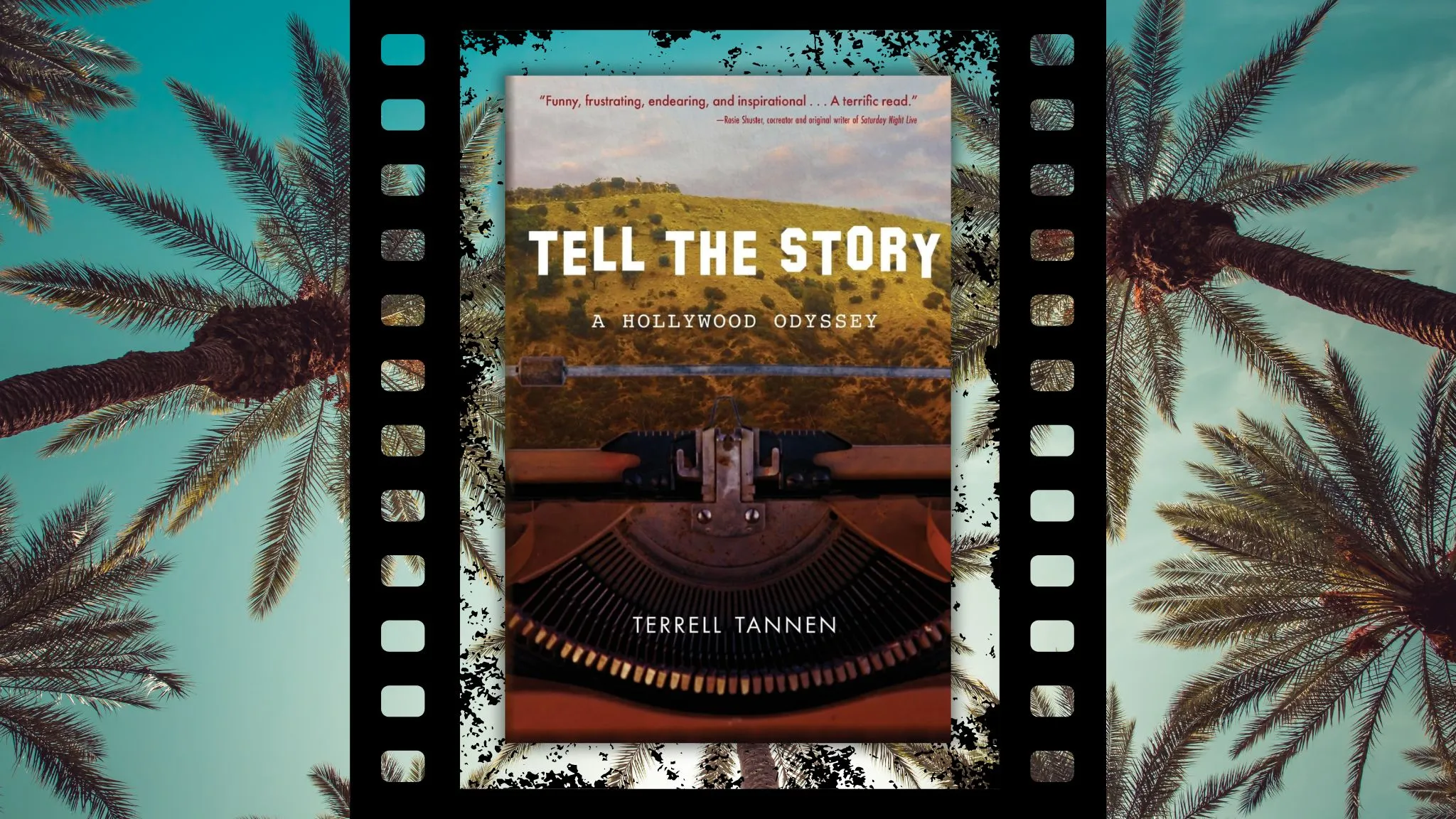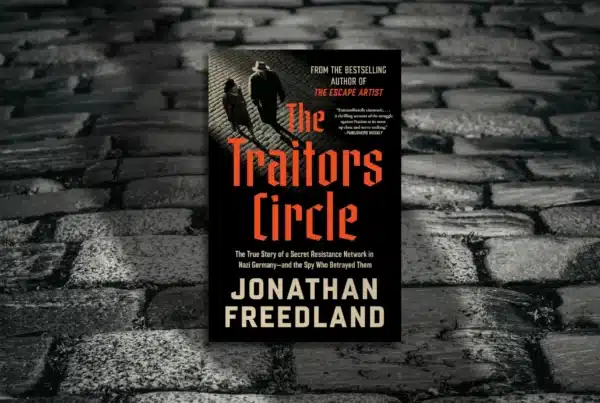Tell the Story by Terrell Tannen
Nearly 50,000 people work in the U.S. film and television industry. Almost all of them labor in relative anonymity, performing the tasks—creative, technical, mechanical, supervisory, and financial—that make it possible for the movie industry and movie stars to exist.
“I have been one of those people for nearly 50 years.”
By many standards, the career of Hollywood screenwriter Terrell Tannen could be viewed as a resounding success. Writing screenplays for Oscar-winning directors. Living the classic Hollywood lifestyle. Porsche. Oversized house. Dinners. Wild parties.
For Tannen to describe it, his is a story of almosts – of seeing promising projects miss out due to unforeseen financial issues, actor egos, casting disputes, politics, or the sheer whim of Hollywood’s power brokers who simply need to flex their executive muscles to be heard.
Perhaps it is Tannen’s tales of residing in entertainment-industry obscurity that make his memoir, Tell the Story: A Hollywood Odyssey, even more fascinating than a traditional American success story.
Yet success comes on many levels, and it’s not always about fame and fortune. As much defining of Tannen’s life is his love of storytelling and his desire to pursue it and make a career out of it.
Chasing the Hollywood Dream
A failed attempt to write a hit, he notes, could generate such a glorious statement as, “A screenplay that doesn’t become a movie is but a doorstop.”
Counter that, however, with the ultimate phone call that makes the journey worth taking. It was a call from industry icon Sydney Pollack, who called one day to tell the author, “I read your script. I think it’s great, and I want it to be my next movie.”
The truth is in this business you never know. Two classic films, The Wizard of Oz and Out of Africa, are mentioned as films initially dismissed by audiences. Filmmakers, as Tannen confesses, always maintain hope, no matter the circumstances.
In fact, the nature of ambition in Hollywood is so well described by the author, who notes that even those who seem to have “made it” often find themselves chasing the next big opportunity with no guarantees.
Tell the Story traces Tannen’s life from when he first discovered he wanted to tell stories to working on low-budget documentaries to finding his way to Tinseltown. He made his bones in various projects and unelaborate, makeshift studios, learning the trade, the techniques and the many disciplines to create a movie.
Money Can’t Buy Happiness
A major steppingstone in Tannen’s career comes when he is making a film about a school soccer coach (Pele has already committed to the project) and he is intent on snagging John Huston for a key part. He travels to Huston’s remote island residence, gets to know the man and accomplishes his task.
The author’s observations of Hollywood can be summed up when he writes that he landed “an onslaught of writing assignments, many for prestige projects…but for one reason or another, often the shuffling of studio executives or actors or directors who would be offered greenlit projects, none of these films would get made.”
Tannen made a good living, had a large income and many of the pleasures associated with that. But money, as we know, doesn’t always buy happiness.
Authentic and Engaging Story
In Tell the Story, Terrell Tannen offers readers a candid look at the vulnerability of living in an industry that is often fickle and unforgiving. His self-awareness makes the book all the more authentic and engaging – one that readers can better relate to. There is a deep sense of introspection as Tannen reflects on the personal cost of chasing fame and recognition in a town that thrives on ego.
“I live easily with the turns in the road, but I don’t know if I will ever understand the story behind the story: Ambition – and the cruel yet enticing irony it holds.”
 Terrell Tannen has written, directed, and produced feature films, television, documentaries, and shorts for nearly 50 years. His credits include The Boogey Man, A Minor Miracle, Shadows in the Storm, Gospel Hill, Honor Bound, and dozens of commissioned screenwriting assignments around the world. His commentaries, stories, and essays have appeared in The Wall Street Journal, The New Yorker, Washington Post, and The Lancet. His first memoir, When Blood Is Gone, was published in 2013. An excerpt, Finding John Huston, appeared in The New Yorker Culture Desk. Excerpts from Tell the Story: A Hollywood Odyssey have appeared in The Wall Street Journal (When Pele Met the Public at the Chart House) and Literary Hub (Your Meals in Life are Numbered.) Before moving to Hollywood, Mr. Tannen worked on staff at the Joint Committee on Congressional Operations, U.S. Congress, and as a freelance journalist and documentary filmmaker in Washington, D.C.
Terrell Tannen has written, directed, and produced feature films, television, documentaries, and shorts for nearly 50 years. His credits include The Boogey Man, A Minor Miracle, Shadows in the Storm, Gospel Hill, Honor Bound, and dozens of commissioned screenwriting assignments around the world. His commentaries, stories, and essays have appeared in The Wall Street Journal, The New Yorker, Washington Post, and The Lancet. His first memoir, When Blood Is Gone, was published in 2013. An excerpt, Finding John Huston, appeared in The New Yorker Culture Desk. Excerpts from Tell the Story: A Hollywood Odyssey have appeared in The Wall Street Journal (When Pele Met the Public at the Chart House) and Literary Hub (Your Meals in Life are Numbered.) Before moving to Hollywood, Mr. Tannen worked on staff at the Joint Committee on Congressional Operations, U.S. Congress, and as a freelance journalist and documentary filmmaker in Washington, D.C.





